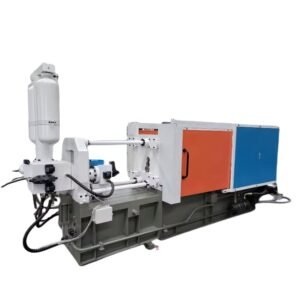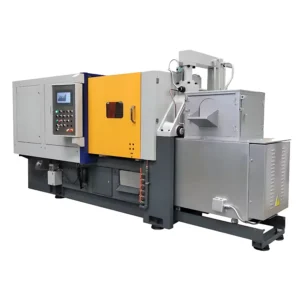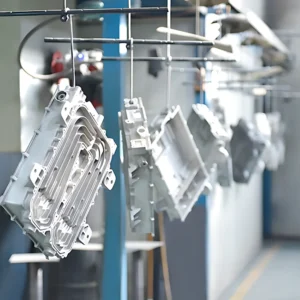The level of precision, versatility and automation that CNC machining or “Computer Numerical Control” machining provides is important for producing high quality parts. And it’s used in a variety of industries, such as aerospace, automotive, consumer electronics, defense, and healthcare.
In this article we will explain how CNC machining is applied in these industries.
What is CNC Machining?

It is a manufacturing method where computers control machines and cutting tools to shape materials like metal, plastic, wood, foam, and composites.
It creates custom parts by removing material through mechanical, chemical, electrical, or thermal machining processes. This precision technique results in tailored and accurately designed products.
These machines will execute complex tasks reliably and provide you with high-quality components. The applications of CNC machines in manufacturing are vast, offering efficiency and precision. In modern industry, CNC machining is essential for its ability to automate processes and deliver uniform results. Explore our website for more information on CNC Machining Services.
So, to summarize what a CNC machine is, we can say:
- CNC machining automates manufacturing processes.
- It executes tasks accurately and efficiently.
- It ensures high-quality production and consistent results.
Now that we have gained an understanding of what a CNC machine is, let’s talk about how various industries utilize it and derive benefits from it.
Applications of CNC Machining in Various Industries

There are so many applications of CNC machines across various industries due to the precision and versatility they offer.
Let’s explore how these sectors harness CNC capabilities to enhance efficiency and innovation.
Aerospace Sector
Precision machining plays a crucial role in the aerospace sector, where high production standards and rigorous safety controls are the norm for creating aerospace parts.
This industry demands the tightest and highest standards for dimensions, tolerances, and performance in every part. This strict requirement is to guarantee the reliability of these components during flights, preventing failures.
These components cannot be made using conventional machining techniques because they must be strong, lightweight, and able to withstand harsh environments.
Various aerospace parts are manufactured using CNC technology, including airfoils, antennae, landing gear, bushings, manifolds, etc.
Vehicle Manufacturing
CNC machining is extensively utilized in the automotive sector for both prototyping and production purposes, which include:
- Crafting components such as cylinder blocks and dashboard panels
- Benefiting from fast turnaround times for efficient production
- Ensuring high precision in the manufacturing process
- Enabling the creation of one-off custom parts
- Facilitating the production of on-demand replacement components
These capabilities contribute significantly to the automotive industry’s flexibility and innovation, allowing for agile responses to market demands and technological advancements.
CNC Manufacturing Applications

Beyond conventional part production, CNC machining reveals a range of manufacturing possibilities, revolutionizing industries through:
- Rapid Prototyping: It harnesses CNC’s agility and precision for the swift creation of prototypes mirroring final products, accelerating innovation cycles.
- Production Excellence: Leveraging CNC’s great precision and material adaptability to manufacture top-tier components for diverse applications.
- Tooling Innovations: Employing CNC for indirect manufacturing processes like injection molding, delivering molds and dies with unparalleled accuracy.
- Hybrid Manufacturing: This includes the fusion of CNC with cutting-edge techniques such as 3D printing or metal casting, culminating in the production of superior parts and products.
- Automated EDM: CNC EDM integrates with robots, CMM, electrode, and workpiece storage stations, and CNC high-speed milling centers to achieve fully automated production. Embracing CNC automation to power Electrical Discharge Machining (EDM), enabling the fabrication of intricate cavities and punch-die combinations for metal and plastic fabrication.
These industrious CNC machining applications redefine manufacturing, empowering industries to innovate, iterate, and excel in the pursuit of superiority. To learn more about CNC machining, read: Types of CNC Machine
Electronics Production
In the consumer electronics industry, CNC machining plays a vital role in the prototyping and production of electronic components. Devices like smartphones and laptops rely on CNC machining for crafting housings, printed circuit boards (PCBs), and other complex parts with precise dimensions.
CNC machining offers the capability to work with a variety of materials, including metals and plastics, meeting the industry’s diverse manufacturing needs.
CNC Machining in Artistic Creations
Applications of CNC machining in artistic creations comprise the following artistry
- Jewelry Crafting: CNC machining revolutionizes jewelry making by facilitating complex designs and precise engraving. Utilizing CNC milling machines, lathes, routers, and laser engraving machines, artisans craft exquisite pieces with thorough detailing. From rings and molds to casting models and engravings, CNC systems ensure impeccable craftsmanship, enhancing the allure of fine jewelry.
- Footwear Design: CNC machines are utilized in shaping the structure of shoes, helping create non-fabricated components, and molding insoles for shoe formats. These machines engrave brand names and logos with precision, adding a touch of elegance to shoe designs and branding.
- Furniture Artistry: CNC routers are widely used in woodworking to make detailed patterns, moldings, and custom furniture. This technology expands design options and lessens the need for manual labor.
- Musical Instrument Fabrication: Precision is paramount in musical instrument crafting, and CNC machining delivers with finesse. From guitar and violin necks to wooden instrument bodies and fretboards, CNC machines ensure uniformity and precision, preserving musical harmony. With CNC technology, artisans can experiment with new materials and intricate designs, pushing the boundaries of instrument craftsmanship.
Military Technology
The applications of CNC machining do not stop at meeting the needs of consumers alone but extend to fulfill the requirements of advanced military technology. The defense sector utilizes CNC machining for prototyping rugged and reliable parts essential for military applications.
The technology enables the creation of on-demand replacement parts and upgraded components, enhancing the sector’s innovation and security capabilities. Parts such as seat frames, transmission components, and missile internals require CNC machining for precise manufacturing and durability in harsh environments.
Medical Equipment
There are extensive applications of CNC machining in the healthcare sector as well, where tight tolerances and high-performance materials are crucial for medical devices and equipment. From surgical instruments to orthotics and implants, CNC machining delivers precision and consistency in manufacturing medically safe components. The sector benefits from CNC’s ability to create one-off custom parts tailored to specific patient needs, ensuring optimal performance and patient safety.
Energy Sector
CNC machining has also made its mark in the energy sector. In the oil & gas industry, where safety and corrosion resistance are paramount, CNC machining is instrumental in manufacturing precise and reliable components.
Parts like pistons, cylinders, and valves require CNC machining for tight tolerances and durability in harsh environments. CNC machining offers the flexibility to work with corrosion-resistant metals like Aluminum 5052, meeting the industry’s stringent requirements for quality and performance.
Optical Communication Industry
The optical communication industry creates tools to understand and control light waves for different uses. The materials mostly used are based on glass, and quality control needs to be extremely detailed. Because precision is crucial, CNC machining is the go-to method for any optical communication project.
CNC machining is employed to craft accurate components like fiber optic connectors, laser components, telescopes, ferrules, optical filters, and couplers. These parts play a crucial role in ensuring the smooth transmission of data through optical fibers.
Maritime Manufacturing
The applications of CNC machining stand as an example of precision and efficiency in the jurisdiction of marine manufacturing. Facilitating the creation of waterborne vessels traveling vast oceans, this technology displays excellence in craftsmanship.
Automated processes within CNC mills, lathes, and electrical discharge machining ensure the timely production of boat components, from sturdy hulls to intricate interiors. Embracing CNC’s capabilities, the marine industry achieves unparalleled accuracy in crafting essential structures such as deck frameworks, hulls, and interior furnishings.
Research and Development (R&D)
In every manufacturing industry, there’s a research and development department that tests new technologies, parts, and products. Applications of CNC machining also cater to this domain, especially in terms of creating prototypes (It quickly creates a fast model of the actual part that is needed). It’s also essential for making dies and molds during the prototyping stage for producing parts.
Food
When it comes to the food and beverage industries, CNC machining might not be the first thing that comes to mind, but it plays a significant role in various aspects. Some machines, like CNC waterjet cutters, directly work on food items for cutting, while others are used for packing or creating cooking equipment.
Common applications include molds, die casting, food processing machine tools, bakeware, and etching.
Conclusion
.Compared to traditional methods, CNC machines bring greater precision, consistency, repeatability, and the ability to machine complex parts and shapes.
With the ability to automate tasks, ensure consistency, and accommodate a wide range of materials and designs, CNC machining is a foundational technology for the fourth industrial revolution. If you need CNC machining services to perfect your material design, please feel free to contact us. We at Castings-CN specialize in CNC machining services.




